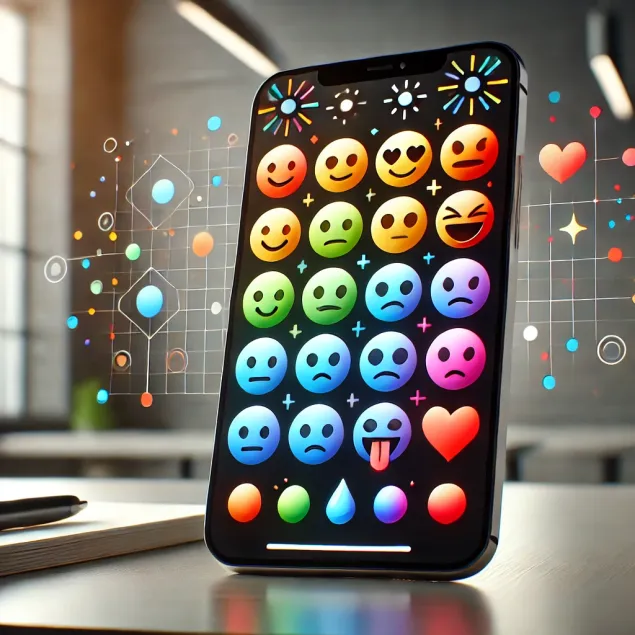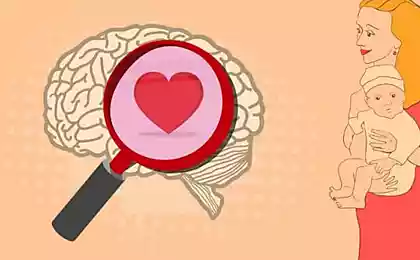374
Emotional Intelligence: Understanding and Managing Your Feelings

Introduction. Emotions accompany us throughout life, playing an important role in both personal and professional spheres. Joy, sadness, irritation, delight - the spectrum of human feelings is very wide. However, not everyone knows how to recognize these feelings in time, analyze where they come from, and properly manage them. In today’s world, it is becoming increasingly important to understand that emotional intelligence (EI) is just as important as traditional IQ. This concept has received serious scientific justification thanks to the work of psychologists John Mayer, Peter Salovey and popularizer of the term – Daniel Goleman. In this article, we will discuss what emotional intelligence is, why it is important for each of us and how to develop it in everyday life to become more confident, balanced and successful in interacting with others.
What is Emotional Intelligence
Emotional intelligence is the ability of a person to be aware of their own emotions and the feelings of others, to manage the emotional sphere and use this awareness to effectively communicate and make decisions. While traditional intelligence (IQ) is often seen as “the ability to think logically and solve problems,” emotional intelligence is responsible for “social-emotional competence.”
According to a common model, several key components are distinguished in EI:
- Self-awareness The ability to notice, name and understand your own feelings.
- Self-regulation: The ability to direct and restrain emotions in the right direction.
- Motivation: Using emotions as a resource to achieve goals.
- Empathy: Understanding the feelings and views of others.
- Social skills: The ability to build relationships and interact effectively with others.
Why is EI so in demand today?
In today’s society, where many professional tasks are solved in teams and competition in the labor market is intensifying, companies value employees who are able to cooperate, successfully negotiate and maintain a healthy working environment. The American Psychological Association (APA) points out that people with high levels of emotional intelligence cope better with stress, burn out less often and are more motivated to self-development. In personal life, high EI can also be the key to harmonious relationships and the ability to calmly resolve conflicts.

How to Understand and Develop Your Emotional Intelligence
1. Be aware of your feelings.
The first step to developing emotional intelligence is learning to closely monitor and “identify” your emotions. We often merge with feeling ("I'm angry," "I'm happy") without analyzing what was the source of this state. Try to ask yourself at the moment of an outburst of emotion: “What particular feeling am I experiencing right now?” Why did it arise? Many people confuse, for example, anger and irritation, sadness and apathy, but understanding the subtleties is already half the way to overcome a negative state.
One of the tricks is to keep an emotional diary. It can briefly record what feelings you felt during the day, in what situations. When analyzing records, it will gradually become easier to identify patterns, triggers, and ways to respond.
2. Learn self-regulation.
Self-regulation is the ability to manage a surge of emotions before it escalates into conflict or harms your mental state. For example, if you understand that annoyance at work is associated with the constant interruptions of colleagues, you can discuss this in a constructive way, suggesting that you divide the time for discussion and the time for quiet work.
- Time-out practices: When you feel that emotions are boiling, take a short pause, step away from the source of the irritation and ask yourself the question: “What constructive way out do I see?”
- Breathing exercises: A few deep breaths and exhalations will help reduce stress levels by triggering physiological relaxation mechanisms.
- Impact analysis: Imagine the pros and cons of an emotional explosion now and in the long run. This will help you choose a more reasonable path of behavior.
3. Develop empathy.
Empathy is the ability to understand and feel the emotions of another person, to look at the situation through his eyes. Without empathy, it is impossible to fully interact in family, friendship and at work. To train empathy, try to:
- Listen actively: Ask clarifying questions, paraphrase what was said by the interlocutor to show that you really understood his position.
- Notice nonverbal signals: Facial expressions, gestures, intonation. They often talk about a person’s feelings more than words.
- Imagine yourself in the place of another: Ask yourself, “If I were in this situation, how would I feel?”
4. Work on motivation.
The motivational component of emotional intelligence involves the ability to use emotions as fuel to move toward goals. If you feel excited and confident, this is the perfect moment to take on a challenging project. But what to do when there is not enough energy?
- Set specific goals: The more clear and achievable the tasks, the easier it is to inspire yourself and keep on the path to the result.
- Encourage yourself: reward yourself with something pleasant (for example, a short break or a pleasant walk).
- Focus on the values: If your work or project aligns with your personal values (e.g. helping people, creating beauty), motivation increases.
5. Develop social skills
Last, but not least, is the ability to interact effectively with others. Sociability and networking skills can be innate, but they can also be developed. It's important to know:
- Have a dialogue, not a monologue: Ask questions, and not just broadcast your own point of view.
- Resolving conflicts constructively: Instead of personal accusations, rely on facts and solutions.
- Demonstrate openness to feedback: Show that you are willing to hear criticism and listen to it.
The Benefits of Developed Emotional Intelligence
People with high levels of emotional intelligence are usually more stress-resistant and successful in the social environment. According to the Harvard Business Review, managers who have good empathy and self-regulation skills are more effective at motivating staff and creating a positive microclimate in the team. The benefits are not limited to work: in the personal life, the ability to understand, empathize with, and avoid rash outbursts of anger or resentment is often a key factor in long-term happy relationships.
Practical Tips for Daily EI Training
In addition to general recommendations, there are special exercises and habits that help strengthen emotional intelligence:
- Meditation and conscious breathing: Regular mindfulness practice teaches you to quickly recognize the signals of the body and mind, allowing you not to get stuck in negative emotions.
- A letter of feeling or morning pages: Formulate on paper everything that bothers or pleases, without caring about style. This is an excellent prevention of emotional “stagnation”.
- Reading and analysis of literature: Artwork is a great tool for empathy, because we put ourselves in the place of characters, trying to understand their motives.
- Searching for emotions in movies: Watch movies, track when you have empathy, fear, joy. It is important to notice how your reaction relates to the story.
- Feedback from friends: Ask your loved ones to tell you how they perceive your emotional state in different situations. This will help you see the blind spots and correct your behavior.
Possible “pitfalls” in the development of EI
Of course, the development of emotional intelligence does not occur at the click of your fingers and can be accompanied by some difficulties:
- Difficulties in identifying true feelings: Sometimes we hide our true emotions even from ourselves, guided by social norms. It will take time and honest reflection to unravel the tangle.
- Confrontation with “negative” emotions: It is not always easy to accept your anger or envy. The main thing is not to judge yourself harshly, but to learn to direct “negative” actions.
- Environmental resistance: If your environment doesn’t support your efforts to become more conscious, it can inhibit your progress. It is worth explaining your new techniques to loved ones or looking for a group of like-minded people.
Why EI is important not only for adults, but also for children
Emotional intelligence should start as early as possible. Children who have learned to understand their feelings, it is easier to adapt in the team, resolve conflicts with peers and build trusting relationships with parents. They also grow more confident because they feel that their emotions are important, understandable, and accepted.
Modern psychologists and educators recommend not to suppress children's feelings, but to maintain the skills of their voice: "You are upset because ...", "I see that you are angry - let's figure out why." Such simple actions lay the foundation for further personal growth.
Conclusion
Emotional intelligence is a set of skills that helps us consciously perceive our own experiences, better understand people around us and make more informed decisions. It is not about suppressing feelings, but about competently managing them for the benefit of oneself and others. The development of EI requires time, a systematic approach and a readiness for internal change. However, the result is worth it: a person with high emotional intelligence goes through life more confidently, interacts more effectively with others and maintains mental balance even in difficult circumstances.
Incorporate a few simple habits into your daily life—tracking your emotions, exercising empathy, practicing “emotional hygiene” through diaries or meditation—and you’ll notice how the quality of your relationships and overall well-being begin to improve. Remember that emotional intelligence is not an innate given, but a skill you can learn. And the sooner you start, the faster you will see positive changes in your life and in your relationships with those you care about.
The Great Fallacies in Science: From Alchemy to Modern Myths
Journey into the depths: the most unusual underground locations in the world























